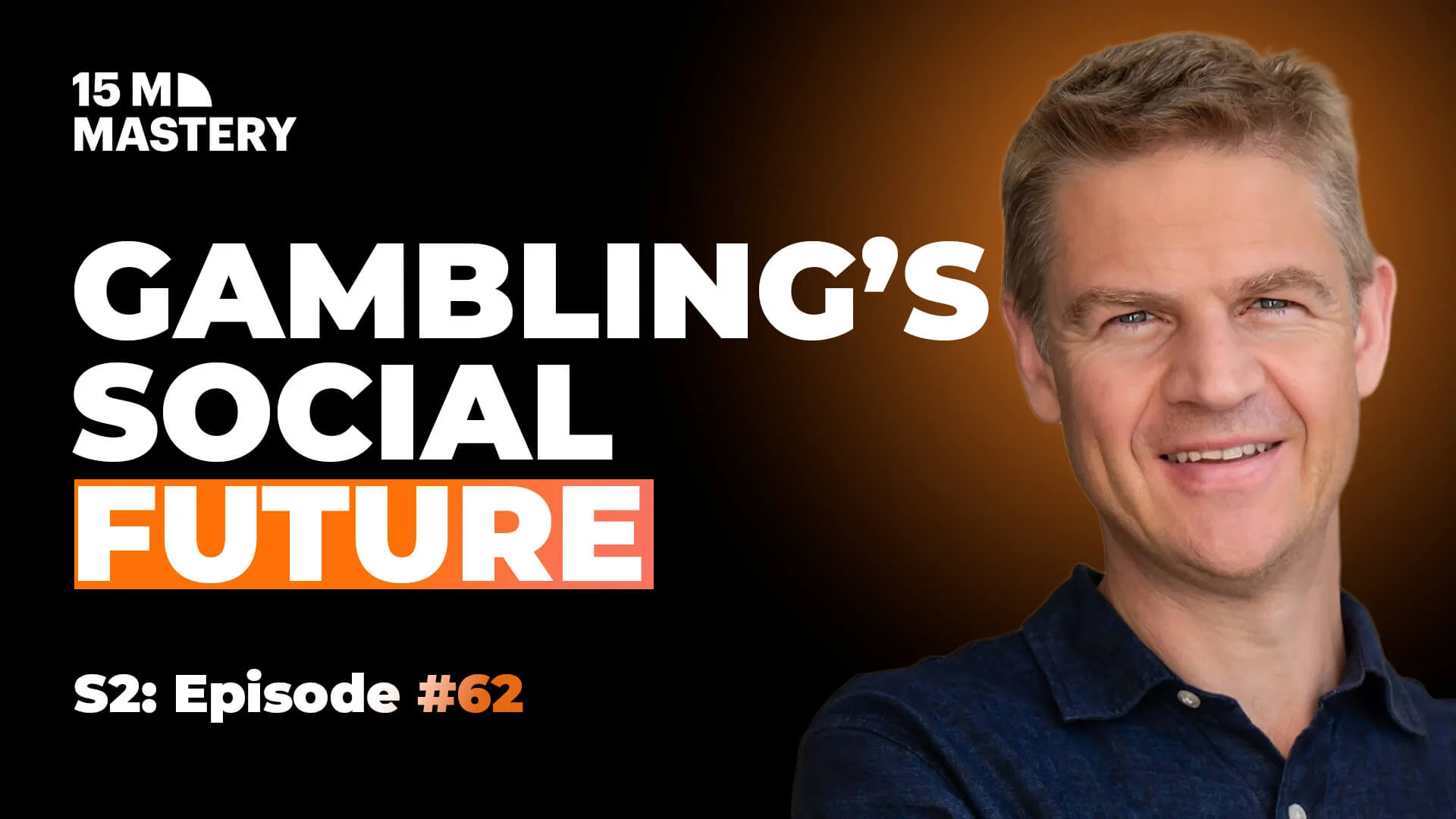Building Player Trust with Crypto: Inside BetHog’s Vision for the Future
With a background that includes founding FanDuel and experience launching ventures across gambling and tech, Eccles returns to 15M Mastery to explain how crypto-native design can rebuild trust, enhance innovation, and push the gambling industry forward in ways traditional platforms cannot.
Crypto casinos offer more than just currency
Crypto gambling has grown rapidly, but what makes it meaningfully different from traditional sites?
“The first thing is value,” Eccles explains. “If I go in with $100, I get six times more play on a crypto casino than I do with most onshore ones.” Return to player (RTP) rates are often 97 to 99 percent, compared to 94 percent in regulated markets like the United States.
But it’s not just payout rates that stand out. Eccles believes the speed and flexibility of crypto-native platforms are driving a wave of product innovation.
“If you’re an onshore operator, your product roadmap is constrained by regulation. But in crypto, you build, test, launch, and iterate in a fraction of the time.”
This innovation cycle has already produced new formats like provably fair games, crash mechanics, and streaming-integrated betting experiences. Eccles expects the next three to five years to deliver even more breakthroughs, nearly all from the crypto-native world.
What provably fair systems really prove
At the heart of BetHog’s offering is a feature that many players don’t fully understand, provably fair gaming.
“Think of it like a digital fingerprint,” Eccles says. “We give the player a hash before the game, and they can verify afterward that we didn’t tamper with the result. It’s cryptographic proof.”
This type of transparency isn’t just technical novelty. It’s a response to one of the biggest issues in online gambling: trust.
With over 300 new gambling operators launching weekly, Eccles says players are increasingly sceptical about fairness and integrity. “Why should I trust you didn’t change the outcome after I placed a big bet? With provably fair games, we can show you we didn’t.”
Transparency is the new compliance
But even provably fair systems don’t solve everything. Eccles points out that many crypto casinos still operate anonymously, and that’s a problem.
“I would never bet serious money on a site where I don’t know who the founders are,” he says. “If you’re asking someone to deposit thousands or even millions, the bare minimum is showing your face.”
Still, anonymity remains common in the crypto space. Eccles attributes this to the historical regulatory hostility in countries like the US. “It became part of the culture,” he says. “But that’s changing. You’re now seeing founders go public and raise venture capital to build real, differentiated products.”
In his view, that shift signals the beginning of consolidation and maturity in the crypto gambling space, as players gravitate toward trusted, visible leadership.
Stable coins and the coming mainstream wave
Beyond product and transparency, Eccles sees a more foundational shift underway: the normalisation of crypto payments.
“The rise of stable coins has been phenomenal,” he says. “Stripe just launched its own chain and stablecoin. Once you have players like that, volume will explode.”
When stable coins become easy and frictionless for everyday users, Eccles believes the lines between fiat and crypto casinos will disappear.
“In five years, I don’t think we’ll talk about crypto casinos anymore. Every casino will accept crypto. It won’t be a separate category.”
While some regions, like the US, remain conservative, he’s optimistic that international markets will lead the way, and regulators will eventually catch up.
A different kind of player, a different kind of product
Who exactly is the crypto casino customer? According to Eccles, it’s not who you might expect.
“There’s overlap with crypto Twitter, but not as much as people think. Our players aren’t trying to beat the system. They’re not obsessed with edge. They want thrill. They want entertainment.”
That difference matters when designing products. Crypto casino players aren’t chasing expected value. They want games that are fun, fast, and fair. “These are people who want to win big or lose big. That’s the psychology. And that’s who we build for.”
What tomorrow’s casino will look like
Eccles believes that crypto gambling is on the verge of losing its outsider status, not because it will conform to the old model, but because it offers something fundamentally better.
Higher RTPs, faster innovation, transparent systems, and identity-backed operators are all part of a new blueprint. One that is more open, not less. One that builds trust through code, not just compliance.
In Eccles’ view, that vision is already being built. You just need to know where to look.


